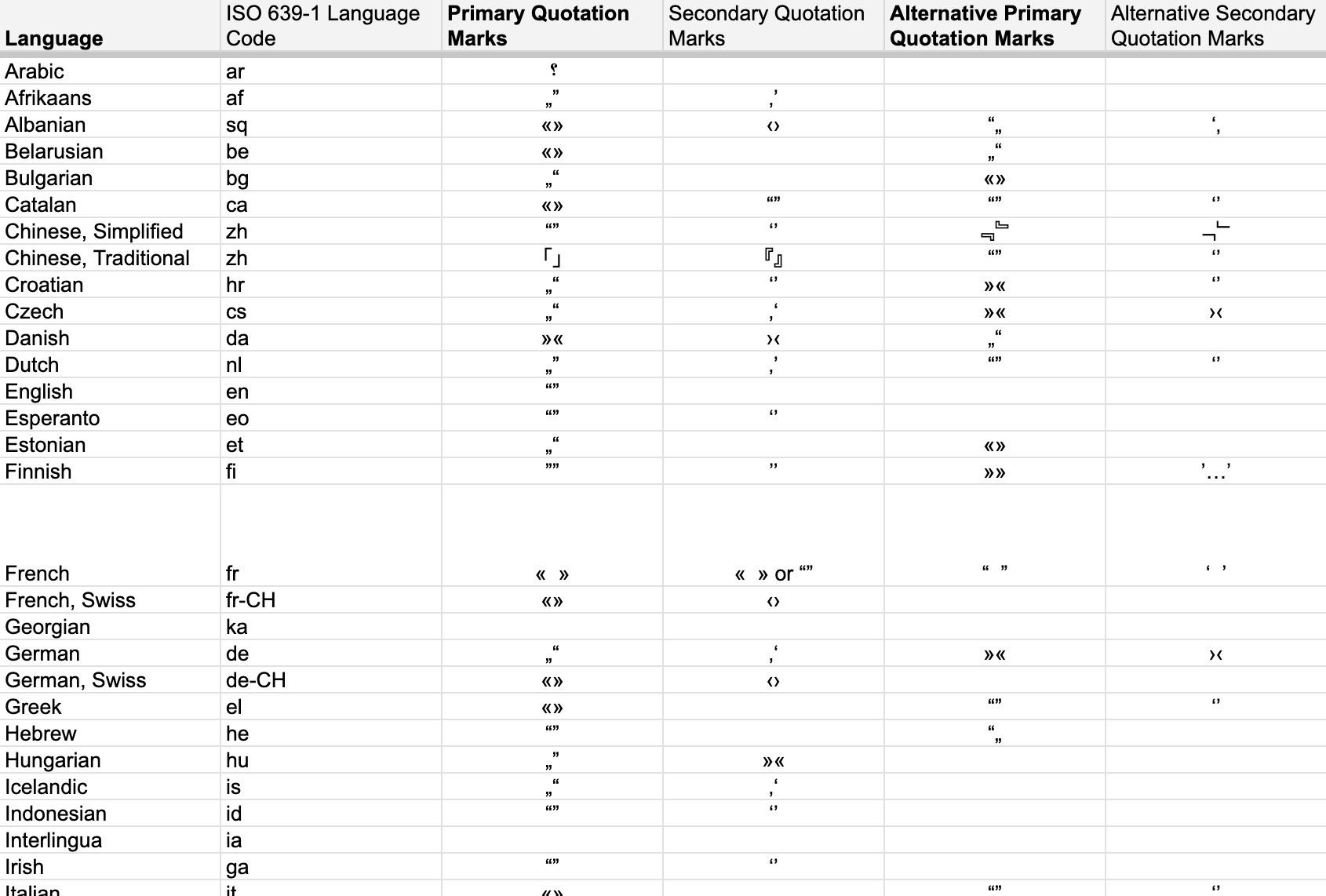Punctuation Cheat Sheet
Published on Jun 3, 2009 (updated Jan 16, 2025), filed under design, development (feed). (Share this on Mastodon or Bluesky?)
This and many other posts are also available as a pretty, well-behaved ebook: On Web Development.
Developing and working with international sites is an interesting challenge, not just because of right-to-left contents. Typographically, there are differences between many locales. To improve punctuation in Google translations I’m using a localization aid that I found so useful to finally share:
The cheat sheet lists the primary and secondary quotation marks of 51 languages (mostly as per Wikipedia). It also includes information about characters that tend not to be used the right way that often, like dashes and ellipses, as well as notes on the use of decimal points vs. decimal commas.
I’m still working on the document but like it to be of service to more people. Contact me if you like to contribute. A different hosting location and alternative formats are under investigation.
About Me
I’m Jens (long: Jens Oliver Meiert), and I’m a web developer, manager, and author. I’ve been working as a technical lead and engineering manager for companies you’ve never heard of and companies you use every day, I’m an occasional contributor to web standards (like HTML, CSS, WCAG), and I write and review books for O’Reilly and Frontend Dogma.
I love trying things, not only in web development and engineering management, but also in other areas like philosophy. Here on meiert.com I share some of my experiences and views. (I value you being critical, interpreting charitably, and giving feedback.)

